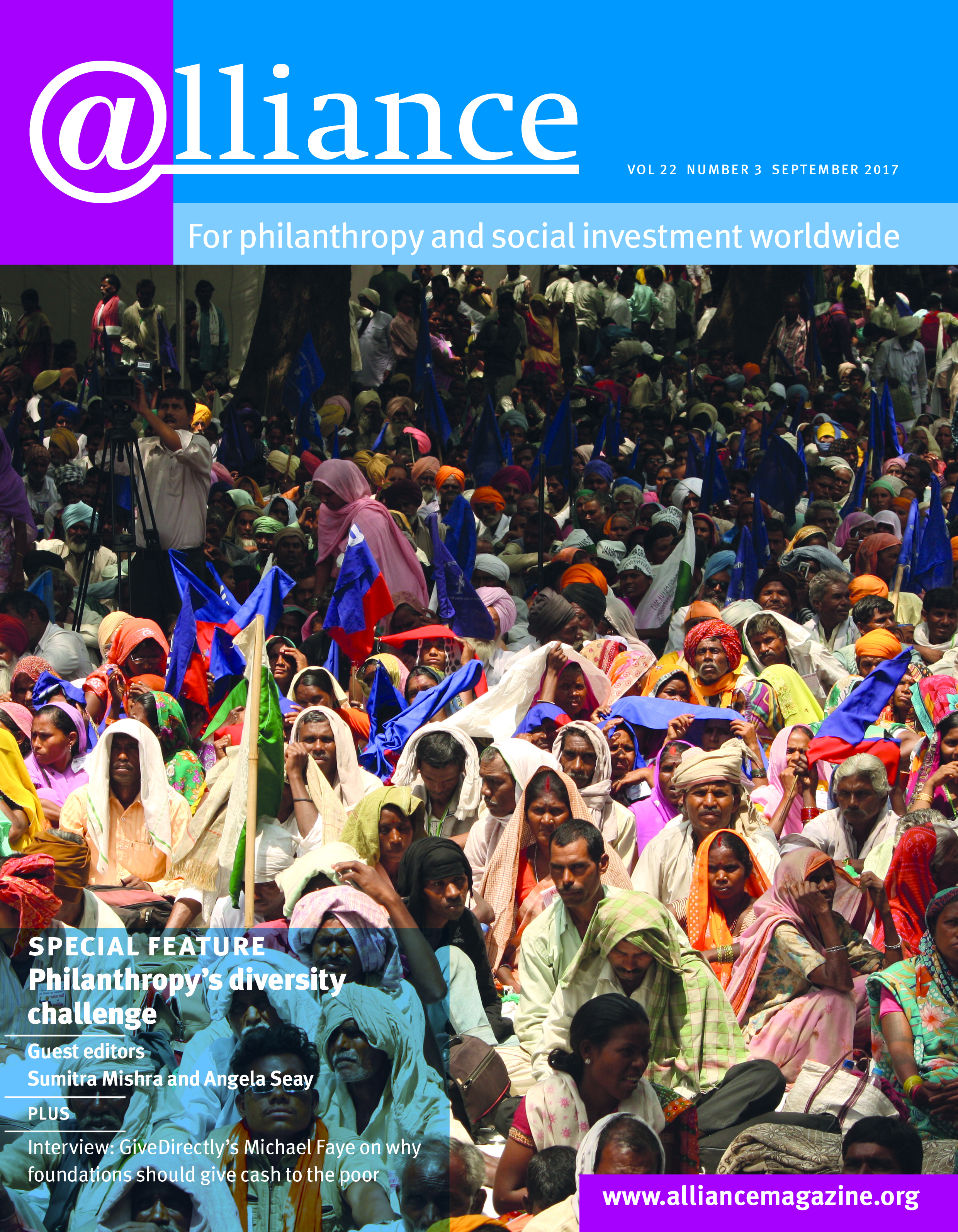‘Nothing about us without us’ was a slogan coined by disability rights activists to communicate the idea that no policy should be decided by any representative without the full and direct participation of members of the group(s) affected.
Many working in philanthropy would be sympathetic to this principle. Being in touch with the people you aim to serve is not just a sound moral imperative but also likely to make an effective philanthropic strategy. A lack of diversity on boards and at staff level ‘probably limits their intelligence about what is happening on the ground’ notes European Foundation Centre chief executive, Gerry Salole, who suggests that foundations would be well advised to ‘reflect the streets’.
Yet, judging by the contributions to this issue, philanthropy’s own workforce remains dogged by a lack of diversity, representation and inclusion. Gaps between richer/whiter people (the foundations) and poorer/darker people (the beneficiaries) emerge strongly in the issue.
Some will shrug their shoulders and say: ‘so what?’ After all, society gives philanthropy freedom to decide how to allocate resources without telling it who should be employed to do the job. Moreover, institutional philanthropy is a product of the privately accumulated wealth of elites – it’s an ‘elitist sport’, as Salole put it in an Alliance interview last year.
A central question, then, is how to reconcile philanthropy’s elitism and relative freedom on the one hand with a case for democratizing it on the other?
This is the challenge examined in our special feature. Our guest editors and contributors offer perspectives from India, Indonesia, South East Asia, Europe and the US. They document the lack of diversity in foundations, why they see this as problematic, and what they think should be done. There are some bold and provocative proposals.
Their challenge to philanthropy is: if you want to do the most good, you need to reflect the make-up of wider society. To an alarming number of its own practitioners, philanthropy simply appears out of touch.
While our guest editors and some contributors are optimistic that progress can be made, I’m more sceptical. Rather than trying to make philanthropy something it’s not, maybe it’s time to acknowledge that philanthropy’s make-up might be a symptom of society’s most pressing challenges as much as a solution to them.
I invite you to join the debate.






Comments (0)